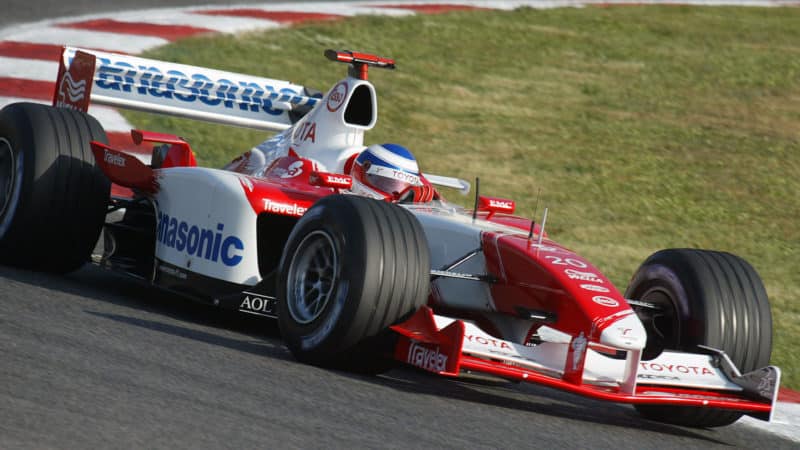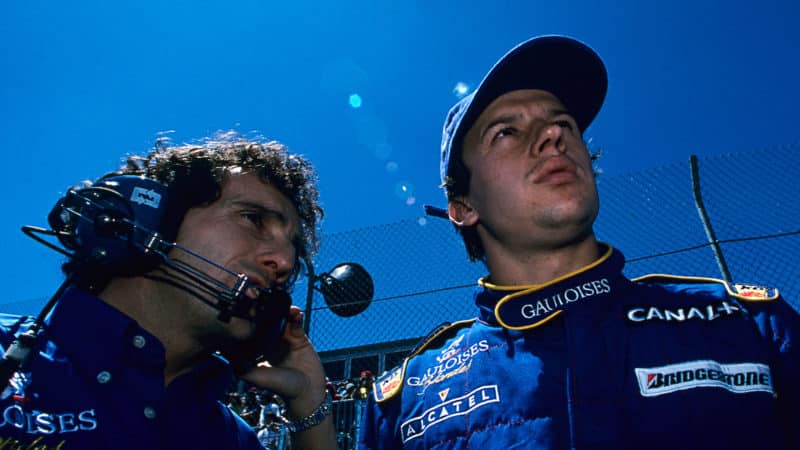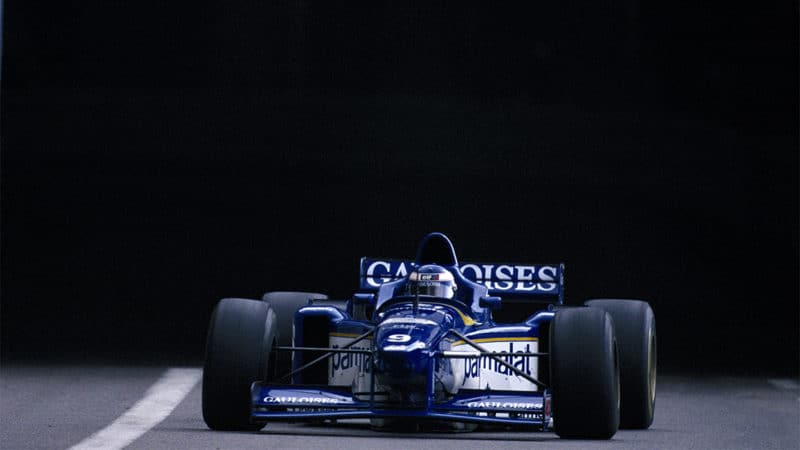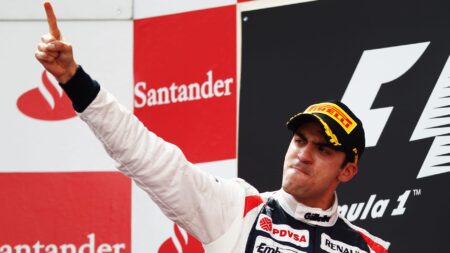Barcelona had not been a flash in the pan. At that point in 1997 Panis had failed to complete only one race, Buenos Aires, the victim of an electrical problem on lap 19, and he had been running in second place at the time. He had finished fifth in Melbourne, third in Sao Paulo and fourth in Monaco. As he was taken to hospital in Montreal on the afternoon of 15 June, he lay third in the drivers’ championship standings.
He missed the next six grands prix, returning for Nürburgring 15 weeks later, where he drove a plucky race to sixth, despite pain in both legs. And that was his 1997, the season that had promised so much but delivered so little. Then, to add insult to injury – literally – the 1998 Prost-Peugeot turned out to be a dreadful car, and Panis would next score a world championship point 18 long months later, at Interlagos, in 1999.
The Prost team limped on until 2001, but by 1999 it was already clear that Alain Prost was distinctly less capable outside the cockpit than he had been inside it. Panis’s point-scoring performance at Interlagos in 1999 had been attrition-assisted, and in the next race, Imola, a broken throttle ended what had anyway been shaping up to be a lacklustre run for him. He was unhappy, visibly so if you knew him reasonably well, as I did in those days. Then came Monaco, the scene of his wonderful victory three years before, in 1996, in the days when Prost had been called Ligier; but, by contrast, Monaco 1999 unravelled into a truly terrible weekend for him.

Career ended at Toyota after stints with McLaren and BAR
Grand Prix Photo
He kept quiet about it at the time, but he told me about it two years later, over dinner at Whittlebury Hall Hotel in April 2001, one wet and chilly evening during a Silverstone test, by which time he was racing for BAR-Honda. It bears repeating: “I arrived in Monaco for the 1999 race on Wednesday morning, driving from my home in Grenoble, and I had lunch with my manager, Peter Poelijoe-Vewald. We chatted — usual stuff — then he left, saying he had a business meeting that evening. I didn’t see him at the circuit on Thursday, which was strange. My wife Anne said she thought maybe he might be in Cannes, because he also worked with some movie people, and the film festival was going on at the same time. But when he didn’t appear on Friday, or Saturday, and when he wouldn’t answer his mobile either, I began to get worried. So Anne called Peter’s wife – I remember it so clearly – and asked her, on loudspeaker so that I could also hear, where Peter was. ‘Peter’s dead,’ she replied, ‘he had a heart attack on Wednesday night.’”
Olivier’s depression deepened. That afternoon, on the famously tortuous streets of the circuit he loved more than any other, he qualified 17th, well behind his team-mate Jarno Trulli, and the next day his engine gave up after 40 laps. Trulli finished seventh. Next came Barcelona: Panis qualified 15th, well behind Trulli again, and the next day his gearbox broke on lap 25. Trulli finished sixth. “Then I said to myself: ‘Come on, Olivier, you must do something.’” He did. He contacted Keke Rosberg, who was managing Mika Häkkinen so shrewdly, and a deal was done.





